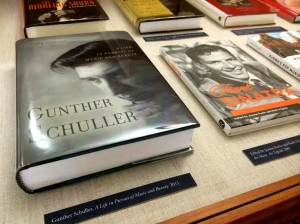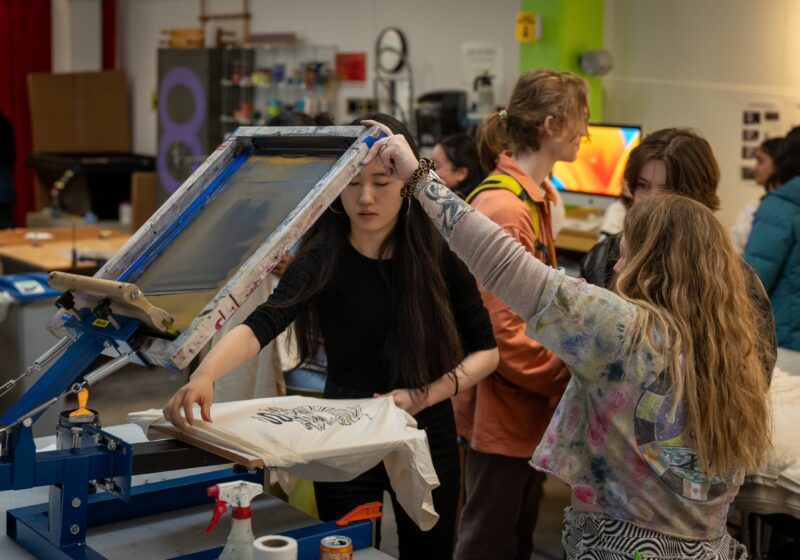 Over the last 25 years, the University of Rochester Press has published over 600 books across a wide variety of academic disciplines, featuring authors of increasing prominence. This year, as part of the UR Press’s 25th anniversary, the publisherhas gained a more prominent presence on campus.
Over the last 25 years, the University of Rochester Press has published over 600 books across a wide variety of academic disciplines, featuring authors of increasing prominence. This year, as part of the UR Press’s 25th anniversary, the publisherhas gained a more prominent presence on campus.
The display cases by the Rush Rhees circulation desk, which replaced the third table, have become a showcase of books that are becoming more influential in the academic sphere.
The Press, the brainchild of ex-Provost Emeritus Brian Thompson, was established in collaboration with English publisher Boydell & Brewer. Today, the Press is run by editorial director Sonia Kane, who has orchestrated a total of seven series of publications in several academic fields ranging from “Changing Perspectives on Early Modern Europe” to “Eastman/Rochester Studies in Ethnomusicology,” “Gender and Race in American History” to the newest series, “Rochester Studies in African History and the Diaspora.”
The editors of these series select and edit publications with their teams, send them to the editorial board, and over the course of a year, send at least 25 books to Boydell & Brewer to be printed.
“It’s very gratifying to me to get a sense of the diversity and range of projects that the press is bringing to the scholarly community,” Press editorial board member and Dexter Perkins Professor in History Joan Rubin said.
To mark the 25th anniversary of the founding of the Press, several activities designed to engage the student body and community will take place throughout the year. Like the display at Rush Rhees circulation desk, the 25th anniversary efforts should increase awareness of the Press’s existence in the UR community.
The display, which was exhibited throughout September, was developed with the help of Department of Rare Books and Special Collections librarian Travis Johansen in order to emphasize the diversity of the Press’s publications in the student-frequented circulation desk area.
When Barnes & Noble opens at College Town, a similar window display will show some of the press’s publications, further promoting and publicizing the Press to a broader audience. The display will become a permanent fixture in the bookstore and will include information about the Press’s history.
On Nov. 1, coeditors of the “Gender and Race” series Allison Parker and Kenneth Marshall will present some of their work at the College Town bookstore.
Like many UR students both past and present, until about 15 years ago, series editor and Professor of Public Health Theodore Brown wasn’t aware of the Press’s publications in the field of medical history and was surprised to find a collection of books published by Boydell & Brewer under the UR banner at a book exhibit at a history of medicine meeting.
Yet he was disappointed with the material covered in the selection, which focused more on British medical thought than international perspectives on medical history. Upon returning to campus, he met with one of the UR Press editors.
“I had looked at the books, and I thought they represented a perspective of the history of medicine that was a little passé,” he said. “I met the editor at the Faculty Club, and I expressed that the material wasn’t too relevant. He told me, ‘Well, why don’t you become the editor of the series?’ And that’s how I got involved.”
Since becoming editor of the “Medical History” series in late 2000, Brown has thoroughly advanced the series’ development, publishing 28 books by authors from more than seven different countries. The series publishes works from both new and well-established authors whose works have been featured by the Cambridge University Press and Oxford Press.
“I think in a very short time, we have positioned ourselves as one of the leading presses in the history of medicine,” Brown said. “I think we’re a good, solid number three [behind Johns Hopkins and Rutgers].”
The Press has become an increasingly important focus for Brown as he seeks to improve the quality of the books and authors published.
Many of the editors see the Press as an opportunity not only to advance knowledge in their respective academic fields but also to serve peer researchers.
“I see myself providing information to the field, keeping the field open to new research, helping people advance their careers, and also publishing respected greats in the field,” Brown said.
Ellen Koskoff, editor of the “Eastman/Rochester Studies in Ethnomusicology” series, echoed Brown’s sentiment about advancing the careers of young academics.
“In my discipline, many of the young folks do not have access to university presses, which are folding,” she said. “I’m glad the [UR] Press opened the door for those people to publish. I’m hoping it continues to attract good ethnomusicology from young publishers especially.”
The first book published in the series after its founding in 2008 was a work on Burmese popular music by Heather MacLachlan.
The UR Press is unique not only for the wide range of topics it includes, but also for its incredible success.
“At a time when university presses are struggling financially, it’s wonderful to be part of a press that has worked out to be financially sustainable,” Rubin said.
Kane is equally enthusiastic about the Press and its contribution to academic spheres as well as its potential expansion.
“I’m always thinking about ways that we might expand into different fields while still maintaining our strengths,” she said. “We hope to continue to make an important contribution to scholarly discourse across a number of fields to offer an important outlet to authors in the humanities.”
Remus is a member of the class of 2016.




